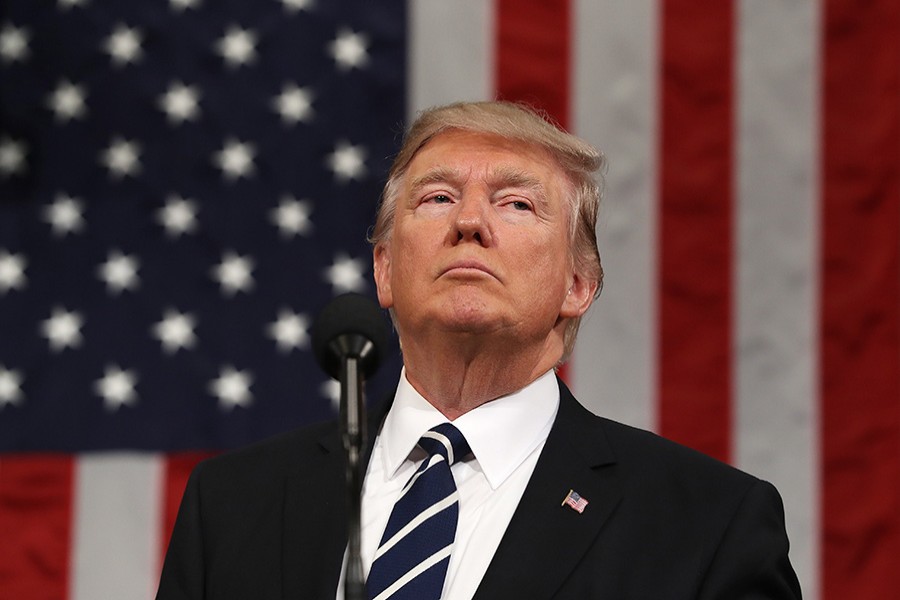US President Donald Trump said on Thursday he would decide whether to carry out his threat to hit Beijing with tariffs on at least $300 billion in Chinese goods after a meeting of leaders of the world’s largest economies late this month.
Relations between the United States and China have deteriorated since Trump in early May accused Beijing of reneging on commitments to change its ways of doing business with the rest of the world.
Since then the two sides have acted against each other’s companies and exchanged harsh words on the diplomatic front, an escalation that has rattled global markets and wiped out more than $1.5 trillion in investments worldwide.
Trump raised tariffs to 25 per cent on $200 billion of Chinese goods and ordered his trade representative to prepare tariffs on another $300 billion, effectively covering almost all Chinese exports to the United States.
The G20 summit, in Japan on June 28-29, marks the first opportunity for Trump and Chinese President Xi Jinping to meet since the last G20 summit in Buenos Aires in late 2018. Trump said a decision on the $300 billion will follow that meeting.
“I will make that decision in the next two weeks after the G20. I will be meeting with President Xi and we’ll see what happens, we’re probably planning it sometime after G20,” Trump said in France on Thursday.
A meeting of the two leaders has yet to be announced. Their trade negotiating teams have not met since May 10.
The two countries have been at odds since July 2018 over a host of US demands that the Asian powerhouse adopt policy changes that would better protect American intellectual property and make China’s market more accessible to US companies.
“Our talks with China, a lot of interesting things are happening. We’ll see what happens... I could go up another at least $300 billion and I’ll do that at the right time,” Trump told reporters in Ireland before leaving for France for D-Day commemorations.
In Beijing, China’s Commerce Ministry struck a defiant tone.
“If the United States wilfully decides to escalate tensions, we’ll fight to the end,” ministry spokesman Gao Feng told a regular news briefing.
“China does not want to fight a trade war, but also is not afraid of one. If the United States wilfully decides to escalate trade tensions, we’ll adopt necessary countermeasures and resolutely safeguard the interests of China and its people.”
The Commerce Ministry also issued a report on how the United States has benefited from years of economic and trade cooperation with China, saying US claims that China has taken advantage in bilateral trade were groundless.
Adding to concerns China may target US companies in the trade war, the ministry last week said it was drafting a list of “unreliable entities” that had harmed Chinese firms’ interests.
US Treasury Secretary Steven Mnuchin is scheduled to meet People’s Bank of China Governor Yi Gang this weekend at a gathering of G20 finance leaders in Japan, the first face-to-face discussion between key negotiators in nearly a month.
The International Monetary Fund warned on Thursday that the dispute with China poses a threat to the global economy and criticised the Trump administration’s wider efforts to overhaul global trade relationships by raising tariffs.


